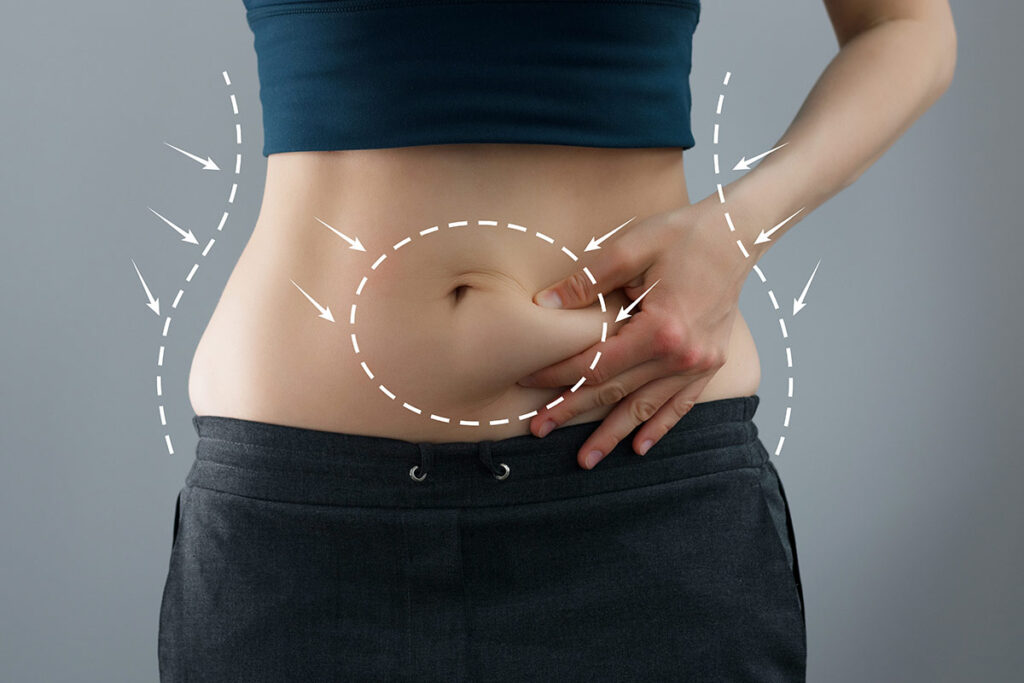Thinking about getting a tummy tuck and wondering what you need to do before surgery day? Abdominoplasty can deliver transformative results, but it requires thoughtful planning to ensure the smoothest experience and the best possible outcome.
From managing your health to setting up your space, every step taken before surgery makes a difference. In this guide, we’ll walk you through what you need to know and do to get fully prepared for your tummy tuck procedure.

What to Know Before Getting a Tummy Tuck
A tummy tuck, or abdominoplasty, is a major surgical procedure that involves removing excess skin and fat from the abdomen, repositioning the belly button, and tightening the stomach muscles. While the results can be dramatic—flattened, toned contours and a boost in confidence—the recovery period comes with its share of challenges. You can expect swelling, discomfort, and limited mobility for several weeks, along with time off work and restrictions on physical activity.
Most patients find the results well worth the effort, but going in with realistic expectations and a clear plan can make all the difference. Being prepared helps you recover better, feel more in control, and get the most out of your investment.
Get a Health Assessment First of All
Before moving forward with a tummy tuck, it’s essential to ensure you’re in good health. A full medical evaluation, including lab work and a review of your medical history, allows your surgeon to identify any potential risks and determine if you’re a good candidate for surgery. This step helps prevent complications and ensures your body is ready to heal properly after the procedure. If you have underlying conditions such as diabetes, high blood pressure, or a history of smoking, these will need to be managed and stabilized well in advance.
What Do You Need to Do Before a Tummy Tuck for the Best Results
Preparing your body and lifestyle before a tummy tuck helps ensure you recover faster and see the best possible results. Small changes made weeks in advance can have a big impact on how you heal and how your body responds to surgery. Below are key steps every patient should take leading up to their procedure.
1. Achieve a Stable Weight
Similar to liposuction, abdominoplasty is not a weight loss procedure. Reaching and maintaining a stable weight before surgery is crucial for both safety and results. Significant weight fluctuations after your tummy tuck can affect the outcome, potentially stretching the skin and compromising the contour achieved. Ideally, you should be within 10 to 15 pounds of your goal weight and able to maintain it consistently for several months. Crash dieting or rapid weight loss right before surgery is discouraged, as it can weaken your body and slow down healing.
2. Avoid Certain Medications
Some medications can increase your risk of bleeding or interfere with anesthesia, making it essential to review your current prescriptions and over-the-counter drugs with your surgeon well in advance. Blood thinners, anti-inflammatory drugs like ibuprofen, and certain herbal supplements should generally be avoided in the weeks leading up to surgery. Your surgeon will provide a list of substances to stop and when to stop them. Always follow their guidance carefully to minimize the risk of complications during and after your tummy tuck.
3. Take Care of Your Diet
Fueling your body with the right nutrients before surgery plays a vital role in how well and how quickly you recover. Focus on a balanced diet rich in lean proteins, fruits, vegetables, whole grains, and healthy fats. Protein is especially important, as it supports tissue repair and immune function. Avoid processed foods, excess sugar, and crash diets. A strong nutritional foundation sets your body up for a smoother post-operative healing process and helps reduce inflammation.
4. Keep Yourself Hydrated
Hydration is an often-overlooked part of pre-surgery prep, but it’s essential for recovery and overall health. Drinking enough water helps keep your skin elastic, supports circulation, and aids in flushing out toxins. Aim for at least 8 glasses of water daily in the weeks leading up to surgery. Well-hydrated tissues are better equipped to heal quickly and evenly. Avoid excessive caffeine, as it can dehydrate your body and counteract the benefits of proper hydration.
5. Avoid Nicotine or Alcohol
Nicotine and alcohol can significantly impact your body’s ability to heal properly after surgery. Nicotine restricts blood flow, which slows healing and increases the risk of complications such as infections and tissue damage. Alcohol can thin the blood, interfere with anesthesia, and worsen post-operative swelling and bruising. For the best outcomes, you should stop smoking and avoid alcohol at least one month before surgery. Talk to your surgeon about safe timelines and any support you might need to quit or pause these habits during recovery.
6. Arrange for Help
You won’t be able to do everything on your own in the days following your tummy tuck, so planning for assistance is crucial. Ask a family member or close friend to help with basic tasks like meal preparation, childcare, driving, or household chores for at least the first week. Having someone nearby ensures your safety and allows you to rest without unnecessary strain. If you live alone, consider arranging temporary support or hiring professional help for peace of mind during recovery.
7. Prepare the Recovery Space
Setting up your recovery space in advance can make the days following your tummy tuck much easier. Designate a comfortable area where you can rest with everything you’ll need within reach—extra pillows for support, medications, water, snacks, entertainment, and any medical supplies recommended by your surgeon. A recliner or adjustable bed is ideal, as sleeping in a slightly upright position helps reduce swelling. The more comfortable and prepared your space is, the more smoothly your recovery will go.
8. Maintain an Exercise Routine
Staying active before surgery can help your body handle the physical stress of the procedure and recover more efficiently. Regular exercise supports circulation, boosts your immune system, and helps maintain a healthy weight—all factors that contribute to a smoother recovery process. Focus on moderate activities like walking, light strength training, or yoga, but avoid anything overly strenuous as your surgery date approaches. If you’re unsure what’s safe, consult your doctor or surgeon for personalized recommendations.
Are You Ready For A Consultation?
Join our satisfied clients who’ve experienced safe, effective treatments
Exercises to Prepare for Tummy Tuck Surgery
Incorporating the right exercises into your pre-surgery routine can help you build core strength, improve circulation, and prepare your body for a smoother recovery. Focus on controlled, low-impact movements that engage the abdominal area without overexertion. Below are some recommended exercises and the benefits they offer for tummy tuck preparation.
- Planks and Side Planks: These static exercises strengthen your core without excessive movement, helping build the stability your midsection will need after surgery.
- Dead Bugs: This move targets deep core muscles like the transversus abdominis, which plays a key role in abdominal control and recovery.
- Heel Slides: Gentle and effective, heel slides help activate your hip flexors and pelvic muscles while promoting flexibility.
- Wall Sits: This isometric exercise strengthens your legs and core, supporting your overall stamina and post-surgery mobility.
- Medicine Ball Crunches: Engaging your upper and lower abs, this variation adds resistance for improved core development.
- Reverse Crunches: Targeting the lower abdominal muscles, these are especially useful for creating balanced core strength.
- Cardio & Aerobics: Light cardio like brisk walking, cycling, or swimming supports cardiovascular health, circulation, and endurance.
- Leg Lifts: This gentle movement strengthens the abdominal wall and improves lower body control.
- Bicycle Crunches: These work both your abs and obliques for a comprehensive core workout.
- Mountain Climbers: A dynamic core exercise that also boosts heart rate and coordination—ideal for improving overall fitness.
What to Buy for the Tummy Tuck Recovery
As mentioned earlier in the “Prepare the Recovery Space” section, setting up your environment ahead of time can make recovery significantly easier—and that starts with having the right items on hand. Stocking up before surgery means less stress and fewer errands during the time you should be resting. Here’s a list of essential and helpful items to consider.
Essential Items for Tummy Tuck Recovery
- Compression Garments: Reduce swelling and support healing tissues while improving contour.
- Pain Medication: Whether prescribed or over-the-counter (as approved by your surgeon), you’ll need these to manage post-op discomfort.
- Comfortable Clothing: Loose-fitting clothes like robes, sweatpants, or oversized shirts are ideal.
- Wedge Pillow: Helps keep your upper body elevated to minimize swelling and promote circulation.
- Supplements: With your surgeon’s guidance, consider vitamins A, C, and probiotics to support healing.
- Stool Softeners: Constipation is common after surgery due to pain meds and limited mobility—have these on hand.
- Drain-Related Supplies: If your surgeon uses drains, items like drain bags, lanyards, or specialized garments will be helpful.
- Gauze and Pads: Useful for dressing changes or minor leakage at incision sites.
Other Helpful Items
- Toilet Seat Booster: Makes bathroom use easier and reduces strain.
- Canes or Walkers: Some patients find them helpful for added balance and safety in the first few days.
- Ice Packs: Useful for managing swelling and localized discomfort (used only if approved by your surgeon).
- No-Slip Socks: Add safety when walking around the house.
- Neck Pillow: Great for travel to your appointments or extra comfort while resting.
- Hydration Supplies: Keep water bottles nearby to stay consistently hydrated.
- Comfort Items: Books, TV remotes, streaming setups, or magazines to pass the time and help you relax.
Tummy Tuck Before and After Photos


* Each patient is unique and individual results may vary.
How to Mentally Prepare for the Day of Surgery
Preparing mentally for your tummy tuck is just as important as preparing physically. Surgery can bring a range of emotions—from excitement about your results to nervousness about the procedure and recovery. Addressing these feelings head-on can help you feel more confident and in control.
Start by educating yourself on what to expect. Review the steps of the procedure, the recovery timeline, and any instructions from your surgeon so you’re not caught off guard. If you have questions or concerns, don’t hesitate to ask your care team—they’re there to support you.
Practice stress-relief techniques like deep breathing, light meditation, or journaling to stay calm in the days leading up to your procedure. Getting enough sleep, spending time with loved ones, and visualizing a successful outcome can all help reinforce a positive mindset. The more mentally prepared you are, the smoother and more empowering your surgery experience will be.
Choosing the Right Surgeon Matters
Having the right plastic surgeon isn’t just about credentials—it’s about ensuring you’re in the best hands before, during, and after your tummy tuck. When you’re feeling the natural nerves that come with surgery, the peace of mind that comes from trusting your surgeon can make a world of difference. A skilled surgeon will guide you through the preparation, tailor the procedure to your needs, and provide you with a safe, effective recovery plan. That kind of experience reduces risk and sets the stage for exceptional results.
At the Plastic Surgery Clinic of Eau Claire, Dr. Ember Ewings is known for delivering high-quality surgical care with a personal touch. Board certified by the American Board of Plastic Surgery, Dr. Ewings trained at the University of Wisconsin-Madison, completed her residency at Saint Louis University, and further honed her expertise with craniofacial fellowships in Memphis and Paris. Schedule your consultation today by calling 715-833-2116 or visiting our contact page.


